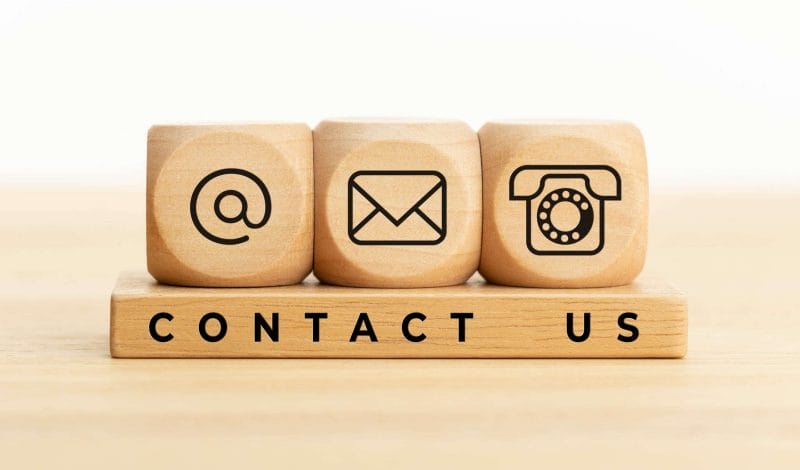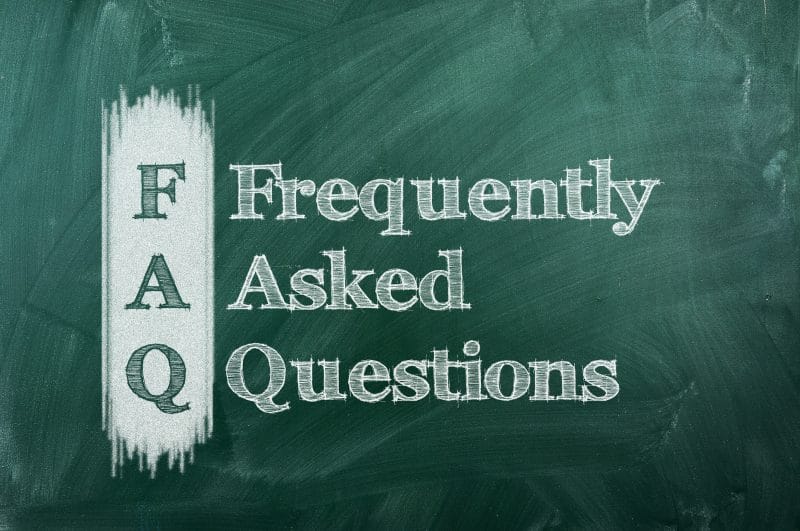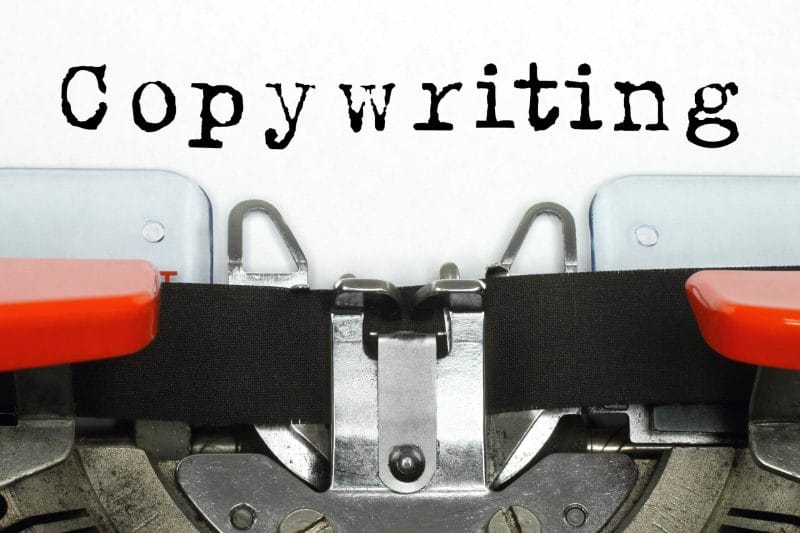The legal industry is growing more than ever and every law firm is looking for the best ways to stand out. As you read the title, your first thought might’ve been, “Is legal copywriting even a thing?”
Law firm copywriting is one of the most critical elements when it comes to marketing and advertising a firm. Copywriting consists of either written or spoken words, which marketers use to get people to take action after reading or hearing them.
Think of copywriting as one big call to action. What this means is that copywriters are trying to get people to feel, think, or respond — or, ideally, look up the brand to learn more about the campaign. However, the approach might be trickier for law firms because very few attorneys are skilled at writing killer copies.
As a lawyer, you work on cases and legal matters for your clients and their best interests. Many legal professionals don’t have time to do their marketing, although it’s essential. Marketing is one of the most time-consuming tasks for law firms. Creating content and compelling copy for your practice’s website is crucial if you want your website and pages to rank higher on search engines.
You might have a decent website with your services and a blog giving information to your readers. However, if people see your content, a copywriter writes to engage the reader, entertaining while subtly selling. A lawyer writes to build an airtight argument, combining strategy and wit.
However, it is imperative to keep in mind that your audience hates legalese. If they do not understand the copy on your website or if there are too many words on your ad – they will simply click away without hesitation.
This guide talks about all the nitty-gritty of copywriting and how law firms ultimately benefit from it in the long run.
Benefits of Legal Copywriting

So how can lawyers and law firms use copywriting to their advantage? For this, they need to first understand the benefits of legal copywriting, which are as follows:
Builds Your Law Firm’s Image

Your web copy is the first thing visitors see when they discover your website. It helps them determine whether you’re credible, proficient in the field, and potentially worthy of their business.
That’s why first impressions are vital. Your web copy must be appealing to your audience right off the bat – be it your tone, grammar, or even the images you use on your firm’s website.
A copy showcases the quality of the products or services you provide. Any small mistake will reflect negatively, as a spelling error may poorly reflect your firm.
Quality copywriting considers all these aspects and finds the best possible angle to portray your law firm.
Your web copy strengthens your brand image and boosts trustworthiness, so you start your relationship with your prospects on the right foot.
Builds a Connection With Your Audience

Your audience is constantly figuring out the ideal attorney to best represent them. However, in a world with numerous lawyers and law firms, this task is mammoth.
To narrow down their options, they research further to learn more about your firm. The best way to communicate via a website is through a powerful brand story.
Skilfully curated brand stories connect with your audience, proving to them that you are their right choice. They touch on the audience’s overall emotions, making the audience feel understood. They take the audience on a journey while talking about the firm’s conception. As your potential clients scroll through your website, they should feel connected to you.
Only when readers feel connected with you do they prepare to approach you for assistance. Legal copywriting helps you build that connection you would need.
Showcases Your Brand Personality

Besides your landing page and brand story, your law firm has many more touch-points keeping you connected with your target clientele.
Some examples would be emails, blog posts, or social media posts.
Each of these touch-points permits your audience to learn more about your workflow as an attorney. An excellent social media copy gives your audience a sneak peek into your firm’s approach to handling various legal cases.
Your audience would want to see different nuances of a law firm beyond the generic “suit and tie” corporate lifestyle filled with paperwork.
Great copywriting gives your audience precisely the experience they are looking for. Moreover, it also maintains the consistency of your firm’s tone and voice through different platforms while showcasing a unique brand personality succinctly.
Whether it is a simple one-line tweet, an Instagram post or a blog article from your firm, consistency in the tone of voice is essential. Your audience’s impression is solidified, so they eventually consult with you anytime they face any legal dilemmas.
Distinguishes Your Firm From Competitors

When your potential client is searching for a “personal injury lawyer near me”, a simple Google search offers them many pages as options! They will naturally compare you to your competitors in order to determine the best choice for them.
This means to convert your prospect into a legitimate client, you need to stand out. You need to highlight your services and benefits in a way that fits their needs and prove you can assist them better than anyone else!
Great copywriting does so by providing them with a fresh angle of how you stand out from your competitors in an objective manner.
This might not be your cup of tea as an attorney!
Obviously, you would be more focused on billable hours and might not put much thought into your copy, thus accidentally putting out complex, jargon-laden language.
That’s where legal copywriting can help because there is a deep understanding of psychology and market experience.
Legal Copywriting can highlight your services in a simple way and can make you stand out more easily with impactful but easy-to-understand language.
Helps You Rank Higher on Google

Let’s get real – it’s not enough to create your website if you’re not seen. Sure, as an attorney, you have a great website with value-driven content, but what if it isn’t visible on search engines? All that great content goes unseen.
How can you drive millions of targeted, organic visitors to your website and get your potential clients to learn about your services? You need to rank highly on Google.
Of course, legal copywriting aims to help convert your website visitors into clients. However, excellent copy also optimises your website to rank on Google.
This is done by strategically incorporating words and phrases that are keywords into your website’s copy, so it pops up whenever your target audience searches for a particular keyword.
Increases the ROI of Your Digital Marketing

Today, with targeted ads, people see ads and get their desired product or service right at the click of a button. However, relevance is critical here. Relevancy is about whether viewers get what was promised upon clicking the ad,
Both Google and Facebook have “quality score” and “relevancy score” to analyse an ad’s relevancy. The better the score, the more your ad will be shown to your audience. Google places your ad in a higher page position, and Facebook displays your ad to more consumers’ feeds.
The more your ad is seen, the more clicks you’ll get with the same advertising budget. This lowers your Cost Per Click (CPC). Relevancy of your ads also ensures you have higher conversion rates to maximise your ROI. Quality copywriting involves crafting relevant ads that appeal to the target audience, so you lower costs and increase returns.
Types of Copywriting for Lawyers

Everywhere you look, there will be copywriting involved. Right from a TV Ad to even the little push notifications on your smartphones. So, what are the types of copywriting a law firm should focus on? Let’s find out:
Website Copywriting

Website copywriting is an essential skill to develop, especially to market a law firm. You’ll need this type of copywriting for your website, including homepages, landing pages, and more.
A good website is based on user experience as well as stellar website copies. If you are a multi-service law firm, your website should clearly communicate the variety of the services you provide.
The most crucial thing is to define your objective. According to research done by the Niels Norman Group, only 20% of content on a page is read by your audience. Hence, each individual webpages—or, in some cases, sections of a page—should communicate specific information to viewers and prompt them to take a particular action. A sales page and an about page cannot have a similar style of copy.
SEO Copywriting

Law Firm SEO helps you rank on Google. SEO copywriting involves using keywords intelligently incorporated into your pieces. However, it takes time and consistent effort to rank on search engines.
SEO can be best incorporated in blog posts, titles, meta-descriptions, and even navigation text in the websites can be considered when focusing on SEO copywriting. All of these include using power words, adding numbers in headlines, asking questions, adequate spacing between lines, and more to keep the user scrolling further, as well as help Google, discover your blog.
Use sub-headings to break up content. Clever headings increase the time that your reader stays on your page, which can improve your ranking in search results.
SEO copywriting is not just about stuffing keywords in every two lines. It’s also about identifying user intent by doing keyword research and producing content to address queries and pain points.
SEO Copywriting for law firms or lawyers would primarily be based on adding keywords relevant to the relevant practice area pages and lawyer profiles. If you’re a family lawyer and are looking to promote your family law firm, your keywords should focus on questions, and queries about family law.
Creative Copywriting

As mentioned earlier, copywriting is the concept of writing in a compelling manner to persuade someone to take a specific action. Creative copywriting is based on becoming memorable by demonstrating high-class exclusivity or infotainment.
Your aim is to resonate with your potential clients, and the best way to do so is to give legal content a new spin. For instance, you can try altering the copy on your services page. Personalized CTA (Call to Actions) are 202 % more effective. So instead of saying you offer X services, put the point across in a creative way like “I can save you from XYZ” and make them take a particular action. This shows your wit and builds trust with your prospects as well. You can also incorporate creativity on your landing pages and social media posts.
Email Copywriting

8 out of 10 people only read the headlines. Hence, the goal of email copywriting is to capture your audience’s attention by writing compelling email subject lines, preview sentences, intro sentences for body text, and powerful CTAs. As a law firm, you can utilise email copywriting and marketing as the perfect solution to generate leads for your firm.
A cleverly-crafted email can go a long way when convincing someone to avail of your service.
An email should be short and to the point, and this is where email copywriting comes in. Legal copywriting can be leveraged by writing emails invoking curiosity or providing insightful information on your niche of practice. You can also create newsletters updating your subscribers on what goes on behind the scenes in a law firm.
Social Media Copywriting

When brands initially begin with social media, they often fail to find their voice. Your brand’s voice is the personality of your law firm and how it is perceived in the eyes of a potential client. If your law firm doesn’t have a personalised “About Us” section or doesn’t display team members’ stories, you’ll not be trusted on social media when you try to promote content.
Social media can also be used to address and solve client queries asked online. You can also increase traffic to your website by creating and regularly updating your business page with a solid social media strategy. Regular posts will keep your followers engaged, and you will generate more leads and meet new prospects. Check out our complete social media for lawyers guide for a complete strategy for your firm.
Social media copywriting is another aspect of copywriting that mainly focuses on adapting content in order to suit different social media platforms. The main types of social media are websites, blogs, and law firm company pages.
Social media is one of the most underrated yet most robust marketing tools available to businesses, regardless of size. It gives companies and even law firms the opportunity to reach potential clients with their message and advertise products and services in a modern, creative way. However, law firms need to know the different types of social media platforms so as to tailor their copywriting strategy accordingly— beginning with audience research.
A law firm should consider how they want their copywriting style to speak specifically to each client persona prior to beginning the process of writing a social media copy for that particular platform.
The first step is analysing where your potential clients are spending their time online so that you can write the right message intended for them. Your research will tell you what style of language (formal or informal) most appeals to your target clientele, based on how particular it needs to be for each platform.
When it comes to social media copywriting, your copies should be easy to comprehend and share. It will also help you with the key performance indicators (KPIs), as they are measured differently on each platform. For a post or tweet to make a powerful impact on social media, you need a proper understanding of who your target audience is when writing those posts and tweets.
Social media copywriting is defined by the structure. It’s brief, and it focuses on sharing information with other people through social media posts. Social media copywriters can write informational text for pictures or promotional text that includes words like “click to view” alongside an image of a product.
In contrast, they also know how to write persuasive content to entice readers into taking action, such as attending a seminar or buying something from their website.
Legal Copywriting Tips

So, now you know the benefits and the types of copywriting you can utilise to promote your law firm, but now the question arises: how? Legal copywriting has a different approach; hence here are a few tips that can help you create the ideal copy that best represents your law firm:
Speak Your Prospect’s Language
While you may be an expert on law, it doesn’t mean your prospects do! Many lawyers incorporate legalese into their copies, and that always tends to backfire. Of course, not all legal terms can be simplified. You cannot call a contract an agreement. However, whenever possible, you want to set your tone and language in a way that makes clients comfortable and relate to you better because the reality is that most people didn’t graduate from law school, nor do they want to search for the meanings of legal terms.
Use Short Sentences and Paragraphs
A huge block of black text will be scrolled past immediately, be it your social media copy or your blog.
If you break down everything into smaller sentences, it’s easier on the eyes and simpler to read.
Remove unnecessary words that do not need to be there. Instead of “various”, add “many” and replace “in order to” with “to”.
Focus on Benefits

You can offer a multitude of services, from family law to immigration to personal injury legal services, but what does that mean? Many law firms make the typical mistake of not elucidating upon the benefits of availing of their services.
Let’s say that you’re a personal injury lawyer, for instance, and you represent cases where clients get injured at work while driving, etc.
However, it’s not the only thing your client will want. Millions offer personal injury services, but what makes yours stand out. Instead, they are looking for some guidance on:
- Receiving compensation for the damages they faced
- Protection from insurance companies that are taking advantage of them.
They would want an ideal solution where the attorney is their guide and not an additional problem. Clearly talk about the benefit of each service you offer, and assure your prospects that working with you would be a breeze.
Calls to Action

If your prospects visit your website but don’t take any action, is it really worth putting effort into quality copywriting? Your efforts will only be fruitful once you add a strong call to action. A CTA is a set of words and phrases that help the customer go in the right direction. It needs to be placed anywhere a significant action should be taken and it also needs to be compelling enough for the visitor to take a prominent action, such as calling your office or scheduling a consultation.
However, multiple CTAs are the death of a good website. There should be zero confusion in terms of what action you want your readers to take. Hence, ensure that your CTA is highlighted very clearly across the website.
Offer Lead Magnets and Show Urgency

As a law firm, your primary goal is to get leads? and what better way to get leads than lead magnets!
A lead magnet is a resource that informs people about your services and industry, and because no one dislikes “free stuff”, you can create a copy such as “FREE ONE ON ONE CONSULTATION ONLY FOR THE NEXT 24 HOURS”.
This creates a sense of urgency, and people will give you their personal details in exchange for the said freebie.
Consider the following types of resources:
- Whitepapers
- Case studies
- Newsletters
- Consultations
- E-books
Tug on Their Emotions
What draws a client’s attention the most? Emotions. Yes, the main goal is to get the legal situation figured out, but your prospects are also on an emotional rollercoaster. This needs to be addressed as well. And that’s what you’re here for! Building an emotional connection through your copy is as important as any part of copywriting.
Here are a few ways to do this:
i) Ask Relevant Questions
Asking a question to your audience gets them wondering, and they engage with the copy. This piques their interest and brings them closer to their decision to hire an attorney. Moreover, it’s a great way to incite emotion. Ask questions that address the relevant legal situation, repercussions, and pain points. This generates intrigue, but it also shows that you understand your client’s predicament.
ii) Use Emotional/Power Words
Law firms undermine the power of emotional trigger words in their practice. Anyone dealing with an unwanted lawsuit will be undergoing a hurricane of emotions. Make sure your copy appeals to the emotions of your potential clients. Words like “frustration” and “fear” can resonate with a client and prove your expertise is all they’d need to put an end to their worries.
Every business, big or small, needs an excellent copy. Regardless, so many legal professionals dismiss it without knowing its impact. Improving the copy on web pages could be the secret ingredient to getting you high paying leads and in such a competitive industry like law, legal copywritng is the ideal way to stand out. Your potential clients will make their final decision on hiring you based on how well you showcase your expertise as well as how simply you deliver value,
Legal Copywriting can be aced by speaking in an easy language. Keep it basic and drop the legalese where it isn’t necessary. Always highlight the emotional and experiential benefits of working with you. Ensure that your law firm copies include good calls to action, as well. These tell your readers what action they need to take next to resolve their legal situation. Creating ads based on giving away resources on your website is another surefire way to generate more leads through copywriting. And lastly, prioritise client emotions and acknowledge their feelings through your copy.
Conclusion
Copywriting and Content Marketing are two sides of the same coin, and both play a vital role in enhancing law firm marketing. In the event your firm requires law firm SEO copywriting or content marketing services, you can always reach out and connect with us.
FAQs

1) How can a lawyer focus on copywriting and cases?
Copywriting is a high-income skill that not many can master. However, if you are an attorney who has a lot on their plate and cannot be creative with copies, you can always hire legal copywriters who can understand your firm’s values and mission and craft creative copies in no time.
2) Why is legal copywriting needed?
The goal of copywriting is to essentially connect with the target audience, and legal professionals often fail to realise the impact of a good copy. Legal copywriting entices your prospects into browsing through your website. Moreover, a clever copy always stays in the mind of a prospect. Hence if your copy is distinctive, your prospects will keep you in mind when looking to avail of any legal service.
3) How can I track my efforts?
Using metrics on Google Analytics or social media analytics is a great way to examine how people are influenced by your copies. Moreover, you can also analyse any gaps that exist and fill them accordingly. Perhaps the CTA isn’t compelling enough, or the copy is too wordy. Either way, it is important to track efforts and focus on how best to improve your copy.





